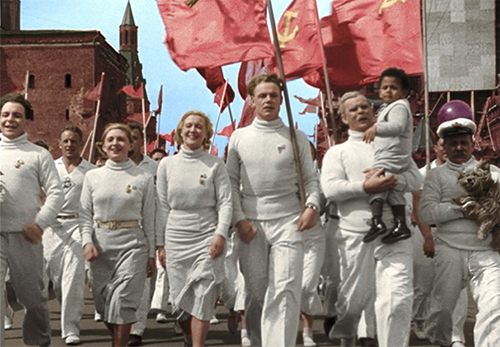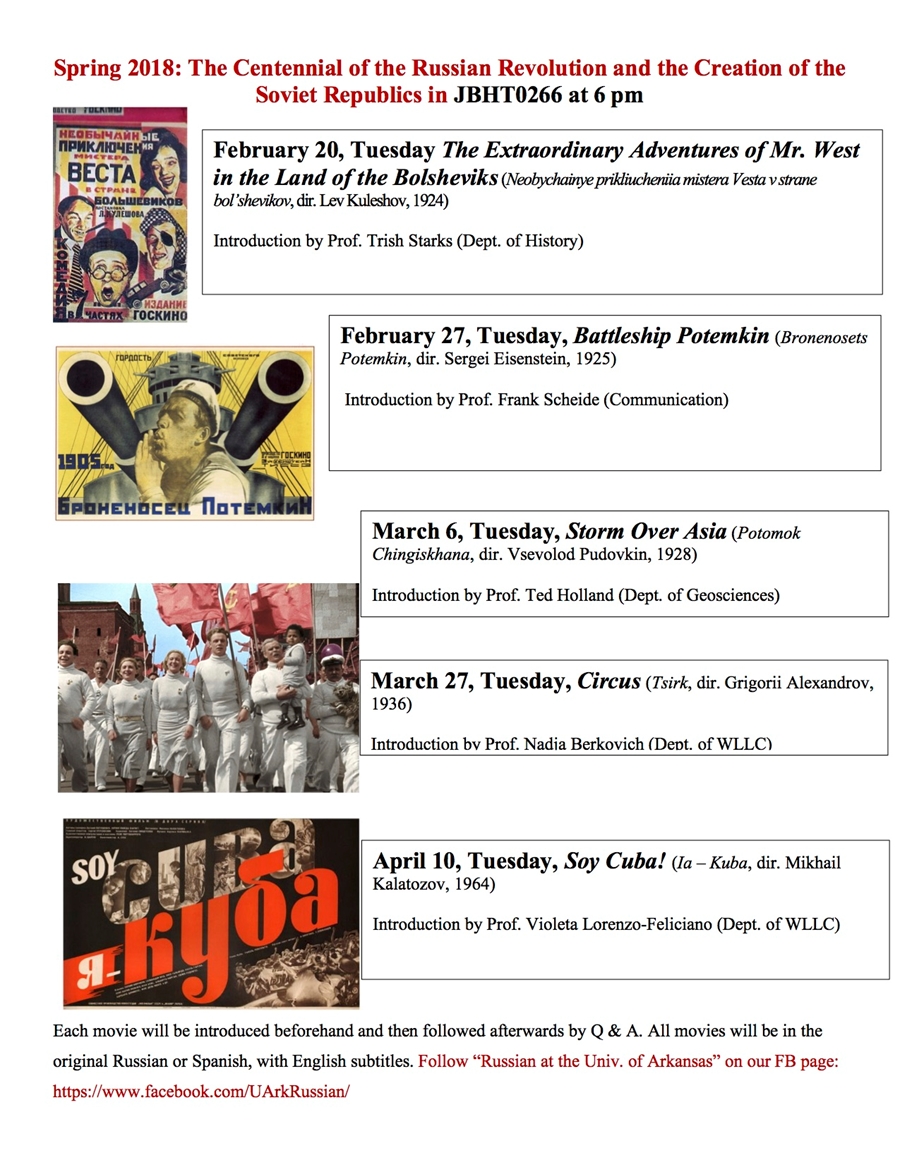
A semester-long film series starting Tuesday will reflect on "The Centennial of Russian Revolution (1917-2017): From the Soviet Union to Cuba through Five Films."
After the Bolsheviks, headed by Vladimir Lenin, took power in October 1917 they established a new polity that aimed to give everyone equal rights and create "an affirmative action" state which could provide national and cultural autonomy to the multiethnic population. For a time, the Soviet experiment proved so appealing that even some African-Americans came to escape segregation and other forms of discrimination.
Usually, it was a one-way ticket.
The Soviets were reluctant to allow them to return to the United States. These topics, featured in the 1936 Soviet film Circus and others, will be explored in the series of five films that will be introduced by faculty members Trish Starks of the Department of History, Ted Holland of the Department of Geosciences, Frank Scheide of the Department of Communication and Violeta Lorenzo-Feliciano and Nadja Berkovich, both of the Department of World Languages, Literatures and Cultures.
 All the films will be shown at 6 p.m. on their respective dates in J.B. Hunt Hall Room 0266.
All the films will be shown at 6 p.m. on their respective dates in J.B. Hunt Hall Room 0266.
Feb. 20, Tuesday — The Extraordinary Adventures of Mr. West in the Land of the Bolsheviks (Neobychainye prikliucheniia mistera Vesta v strane bol'shevikov, directed by Lev Kuleshov, 1924).
Introduction by professor Trish Starks of the Department of History.
The first movie in the series is a silent comedy about a naïve American visiting the land of the blood-thirsty Bolsheviks.
Feb. 27, Tuesday — Battleship Potemkin (Bronenosets Potemkin, directed by Sergei Eisenstein, 1925).
Introduction by professor Frank Scheide of the Department of Communication.
This silent classic by a pioneering Soviet filmmaker became a touchstone for directors the world over because of its innovative use of montage.
March 6, Tuesday, — Storm Over Asia (Potomok Chingiskhana, directed by Vsevolod Pudovkin, 1928)
Introduction by professor Ted Holland of the Department of Geosciences.
This 1928 film, also called The Heir to Genghis Khan, is set in 1918 Mongolia and is an epic of revolution and war on the edge of Siberia.
March 27, Tuesday, — Circus (Tsirk, directed by Grigorii Alexandrov, 1936)
Introduction by professor Nadja Berkovich of the Department of World Languages, Literatures and Cultures.
Set in the Stalinist 1930s, this film follows an American woman fleeing racist persecution in the United States and finding tolerance in the Soviet Union.
April 10, Tuesday, — Soy Cuba! (Ia - Kuba, directed by Mikhail Kalatozov, 1964)
Introduction by professor Violeta Lorenzo-Feliciano of the Department of World Languages, Literatures and Cultures.
The last movie explores Cuba after the Cuban Revolution through the lens of the Soviet director Kalatozov.
Topics
Contacts
Nadja Berkovich, clinical assistant professor of Russian
World Languages, Literatures and Cultures
479-575-7481,